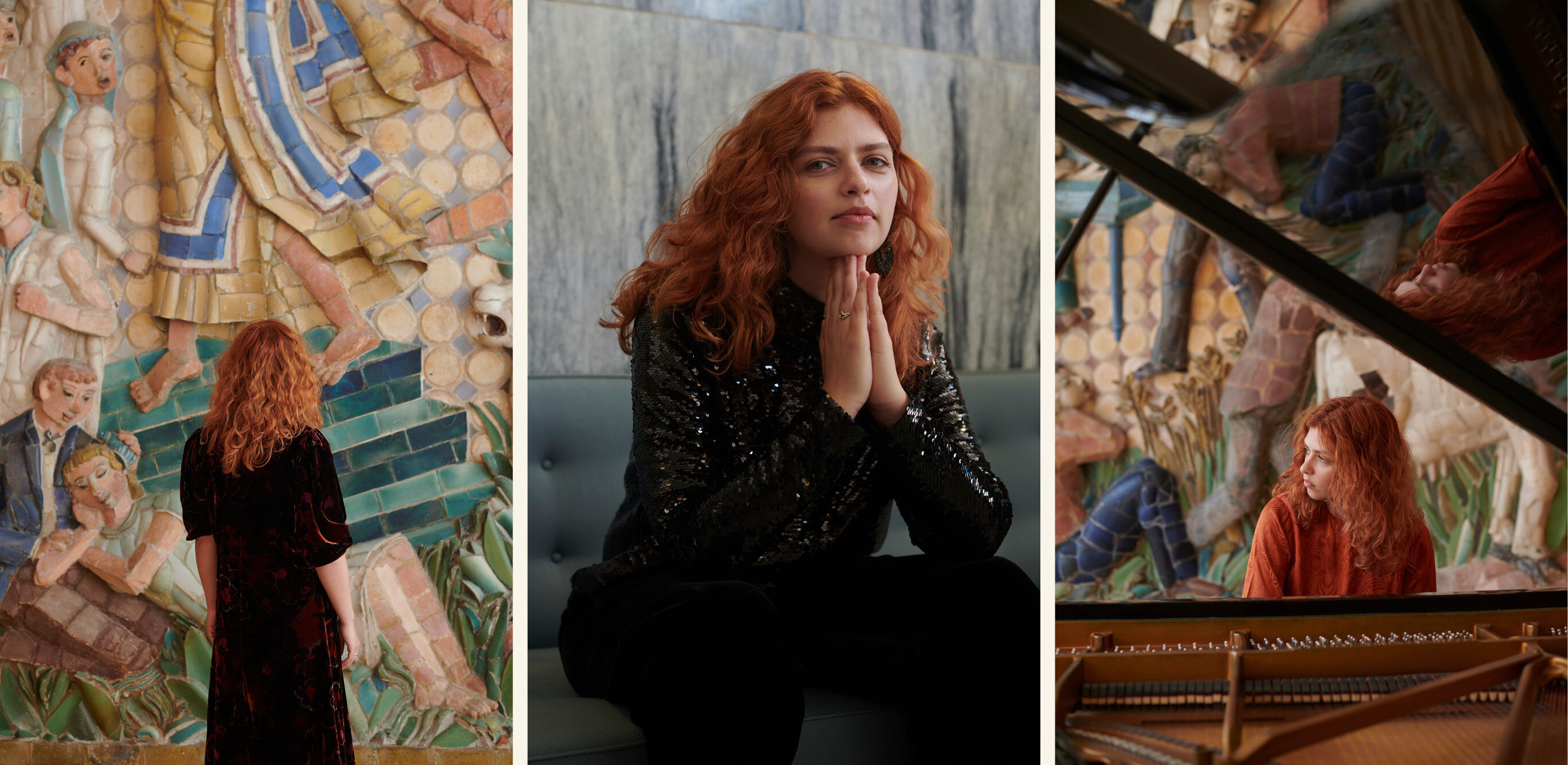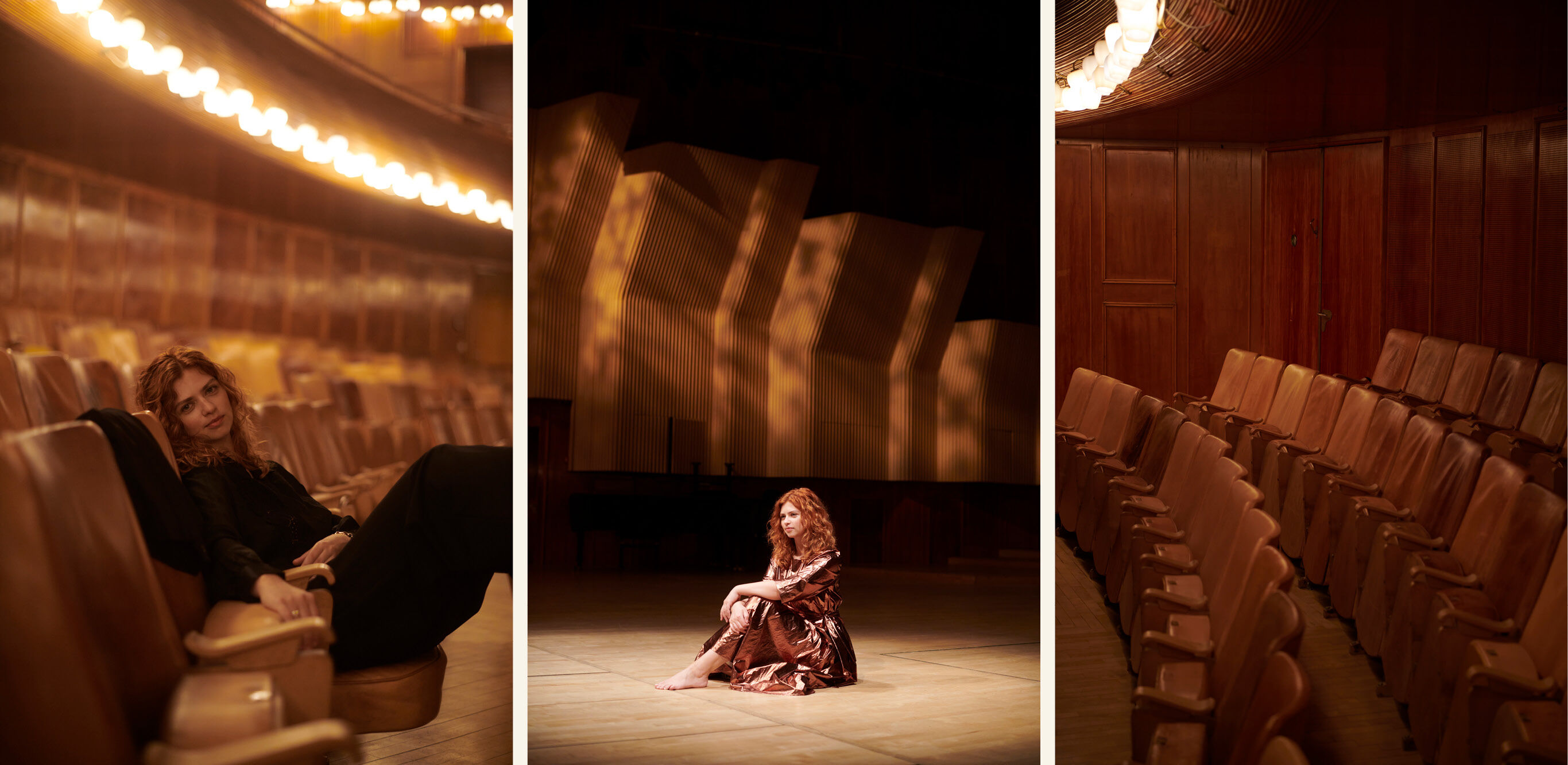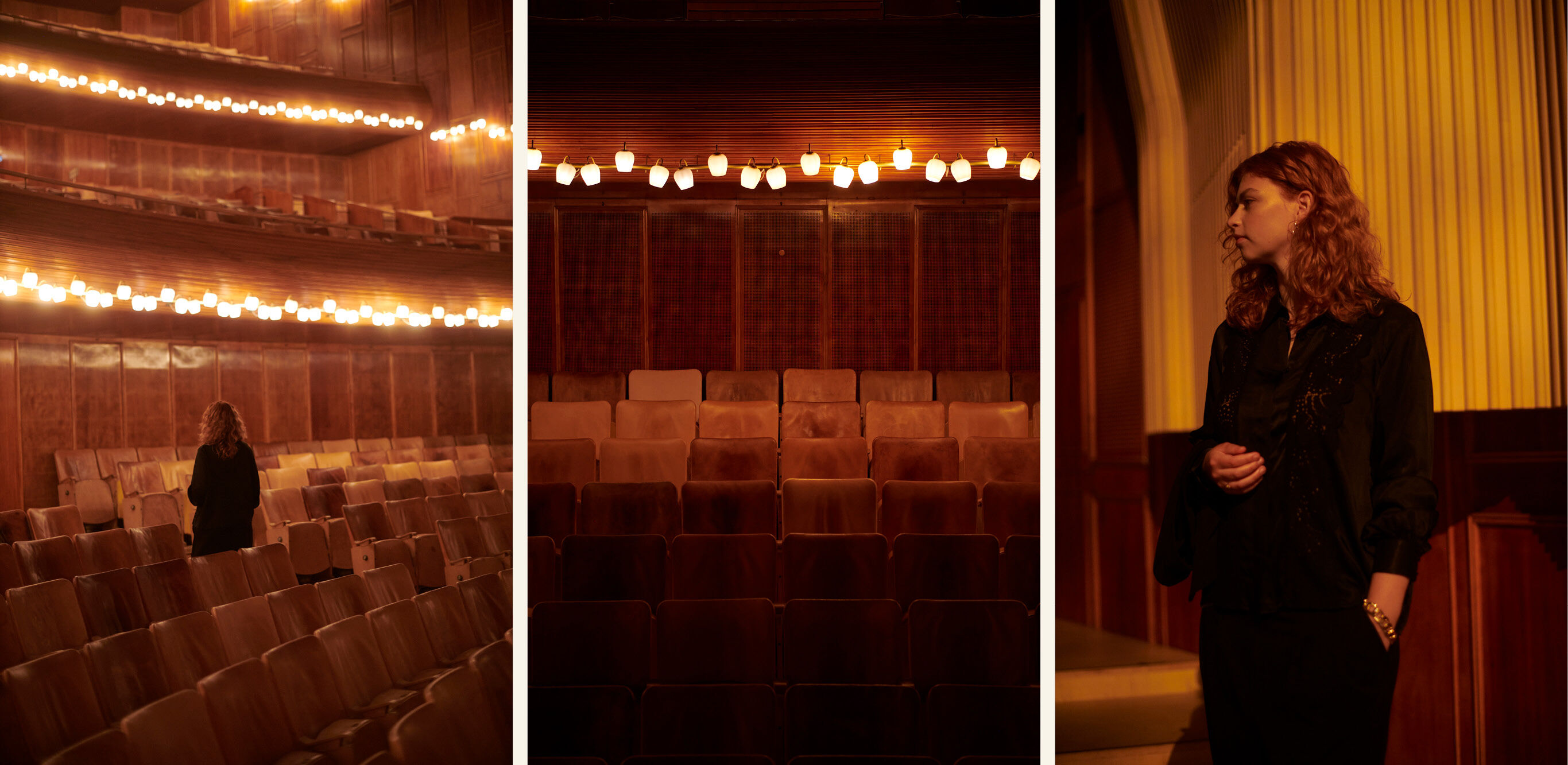Playing a concert is in many ways like running a marathon - you go through multiple stages.
What I wear on stage has always been a big challenge for me. Because it's not just about what I like, it's also about what suits both me and the music. The aesthetic combination of both must be in place, because going to a concert should be a complete experience.
All musicians have their rituals before they go on stage. It might be drinking a cup of tea with a slice of lemon, or applying your makeup a specific way. Or something else entirely. For me, it's going on stage before the audience arrives, focusing on the empty chairs and imagining how the energy will change when the concert hall is full. That's my ritual. It's about the audience and the energy they generate, and which is clearly felt. It's a form of communication between them and me, who is listening. That's why it's so important to play for people and not just for yourself.
Just before you go on stage - those 10-20 minutes - when you're completely on your own and you don't have your instrument and you start thinking, will I remember to keep that time, that chord, that tone and rhythm? Noooo, I've forgotten it…! But then you get on stage and see all those people ... you walk over to your instrument, sit down, place your hands on the keys and the music just comes by itself. And every time it's a magical experience. The peace that settles when you start playing and have the keys below your fingers. It's so amazing, and I hope that it always will be for the rest of my life.






